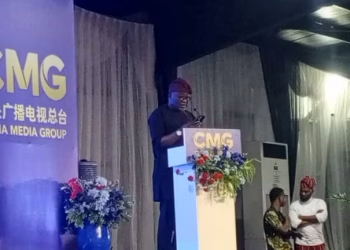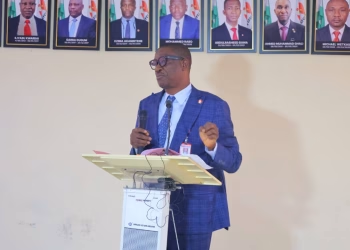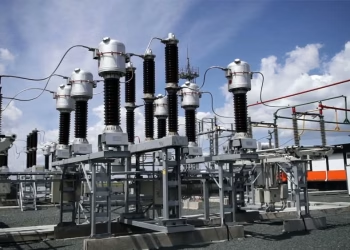The Federal High Court in Lagos has ordered the winding up of Anyiam Osigwe Group Limited following its inability to pay its debt owed to First Bank of Nigeria (FBN) Plc since November 2006.
Justice Ayokunle Faji granted the order in its judgment on March 31, 2023 in suit FHC/L/CP/925/14 between FBN as Petitioner and Anyiam Osigwe Group as Respondent.
Dr ‘Kemi Pinheiro SAN, represented FBN while E. I. Maduabuchi was for the Respondent.
The bank’s prayer, as canvassed by Dr. Pinheiro, was that Anyiam Osigwe Group be wound up pursuant to the Company’s and Allied Matters Act
At the commencement of proceedings, the court analysed the facts of the case and the arguments in respect of same.
Justice Faji addressed the sole issue distilled for determination in the Petitioner’s final written address dated 16th of February, 2022.
The judge agreed with Pinheiro that the Respondent failed to furnish any satisfactory evidence to show that the unliquidated debt is disputed, as argued by the Respondent.
Justice Faji discountenance d the contention of the respondent’s counsel who argued that the debt was the subject of another suit marked LD/1798/09.
The judge noted that there was nothing in the said suit, which has been struck out and remained unlisted, that could amount to a dispute to the debt owed.
Furthermore, the court discountenanced the Respondent’s contention that it is solvent and able to pay its debt
It held that the Petitioner had proved and satisfied the court that the Respondent – Anyiam Osigwe Group Limited – was unable to pay its debt pursuant to Section 408(d) of the Companies and Allied Matters Act, 2004 (being the law at the time of transaction leading rise to the dispute).
Justice Faji held: “In the instant case, the respondent (Anyiam Osigwe Group) has not said that it has paid the entire sum due. It has not even shown that it has paid the principal sum of N750,000,000. It has only alleged paying N230,000,000.
“Even though a court should not hastily grant a winding up order, where there are strong grounds for doing so, particularly where the dispute as to the debt is not on substantial grounds, the Court will grant a winding up order.
So it is in this case.
“This Petition has immense merit and ought to and is hereby granted in its entirety.”












